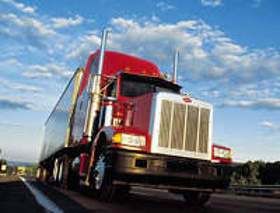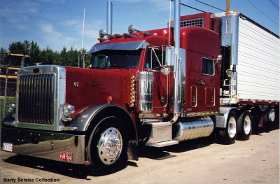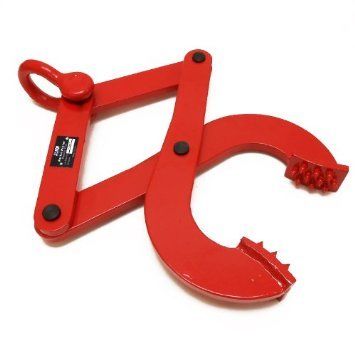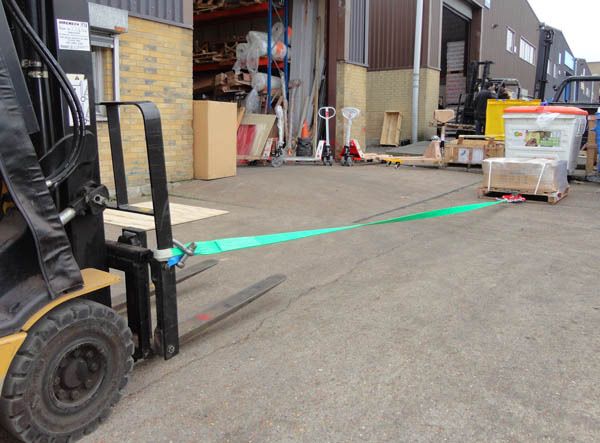No Dock. Forklift Driver Quibbles
Topic 14357 | Page 1

Why do you not have a pallet jack on the trailer? That is what most LTL companies do.
LTL:
Less Than Truckload
Refers to carriers that make a lot of smaller pickups and deliveries for multiple customers as opposed to hauling one big load of freight for one customer. This type of hauling is normally done by companies with terminals scattered throughout the country where freight is sorted before being moved on to its destination.
LTL carriers include:
- FedEx Freight
- Con-way
- YRC Freight
- UPS
- Old Dominion
- Estes
- Yellow-Roadway
- ABF Freight
- R+L Carrier
Posting from warehouse perspective as that's my current job, if we move the freight for someone else it opens us up to being blamed for any damage to product. Just a way for them to cover their ass.

Umm, why isn't the freight loaded according to drop off locations? Of course you'll still probably need a pallet jack to at least move them to the door.
JJ

Pat wonders
Why do you not have a pallet jack on the trailer?
Our PJ does not handle the heavier type of freight that I generally carry.
Rob notes-
it opens us up to being blamed for any damage to product.
Understandable, but I have a run where I deliver from one company branch to the other, no PO number no signature required and the freight to be moved is all going back to the same company that the said FL driver works for. But that FL driver will say one day, "I cant move that freight cause (as you say) I might damage it." But then a couple days later he says nothing, hes fine with moving a skid or two to get to his stuff.. To note though, of the 22 DO/PO on the route only one has said definitely they will not move others freight;, this is the one who does not have a PO to go back to the company.
I just deliver to them so they do not ever put freight on my truck possibly in front of other freight. And they have told me that they were blamed one time for damaged goods.
But I certainly don't hear that from the other FL drivers who do put their freight on my truck in front of other freight that I still need to deliver. When I tell them I need this skid off before you put yours on they don't hesitate to move that skid.
I'm new to trucking so I'm just trying to see whats the normal practices of it all. Thks

Umm, why isn't the freight loaded according to drop off locations? Of course you'll still probably need a pallet jack to at least move them to the door.
JJ
Many of the local and/or dedicated reefer loads are consolidated. Meaning many stops on one trailer that has multiple temperature zones. I run Dedicated Walmart and typically have 4-5 store stops loaded in a multi-zone reefer. Up to three different temperature settings are available and usually are consolidated with Freezer, Dairy, Deli or Meat and Produce in a single load. If my first store stop has 3 dairy pallets and 2 freezer pallets, several other dairy pallets will need to be moved in order to access the freezer zone. Once the delivery is completed the pallets that were moved need to be put back in the correct zone. The trip plan documents include a detailed, overhead map of how the trailer is loaded so the driver knows where everything is placed by store number and freight type. The driver is required to supervise this process to ensure the correct pallets come off and the correct pallets are replaced.
Walmart's freight handlers are required to move pallets and position them back where the load map requires them to be. Most are cooperative, occasionally they push back but never do they refuse to comply with what is required. They are charged with unloading and reloading me in no more than 45 minutes. The only time unloading requires more time than that is if there is a spill or a pallet needs to be re-stacked/wrapped.
Reefer:
A refrigerated trailer.

Jim wonders
Umm, why isn't the freight loaded according to drop off locations?
Indeed it is. We load from furthest north to furthest south. But we certainly do not have a regulated pre-planned route that we must follow or a load plan that we must follow. The freight is only metal finishings and restorings so no need for very much regulating.
Thanks for your info. I took over this route from another driver and in training we never used a pallet jack for whatever reason. Again much of my freight is too much for the pallet jack to handle, tried it a couple of times- skid just cracks.
i'll be fine though, like a few of the FL drivers have said; I just have to switch days and give them a break now and again by asking other FL drivers to move this or that on other days.

Then you need a pallet puller. Will find a picture when get home.

Here you go....

 With one of these the forklift on the ground can pull the pallet to the back of the trailer.
With one of these the forklift on the ground can pull the pallet to the back of the trailer.

Pat Thanks
I've used those pallet pullers a few times already. But I have to also be loaded with freight at these places without a dock meaning of course that their freight will have to be on the tail, meaning also that whatever my next stop is, now that FL driver has to move that freight on the tail to get to his.
HOS:
Hours Of Service
HOS refers to the logbook hours of service regulations.New Reply:
New! Check out our help videos for a better understanding of our forum features

















Preview:








 TT On Facebook
TT On Facebook
Ahh yes. Just so happens on my dedicated route I have several stops with no dock. So you know the story. I have to ask other forklift drivers on other stops to move some freight for me. Well, you would have thought it was the apocalypse the way some of the forklift drivers complain when they see their freight behind a skid or two from the no dock drops or pickups.
Some days they're ok with it especially when you tell them "hey they have no dock". Other days these same FL drivers will make up stories like... "ohh my boss says not to mover other freight".
Is it just me or do others here experience the same BS (beautiful stuff) hehe.
Share your experiences ... thanks
Dedicated Route:
A driver or carrier who transports cargo between regular, prescribed routes. Normally it means a driver will be dedicated to working for one particular customer like Walmart or Home Depot and they will only haul freight for that customer. You'll often hear drivers say something like, "I'm on the Walmart dedicated account."